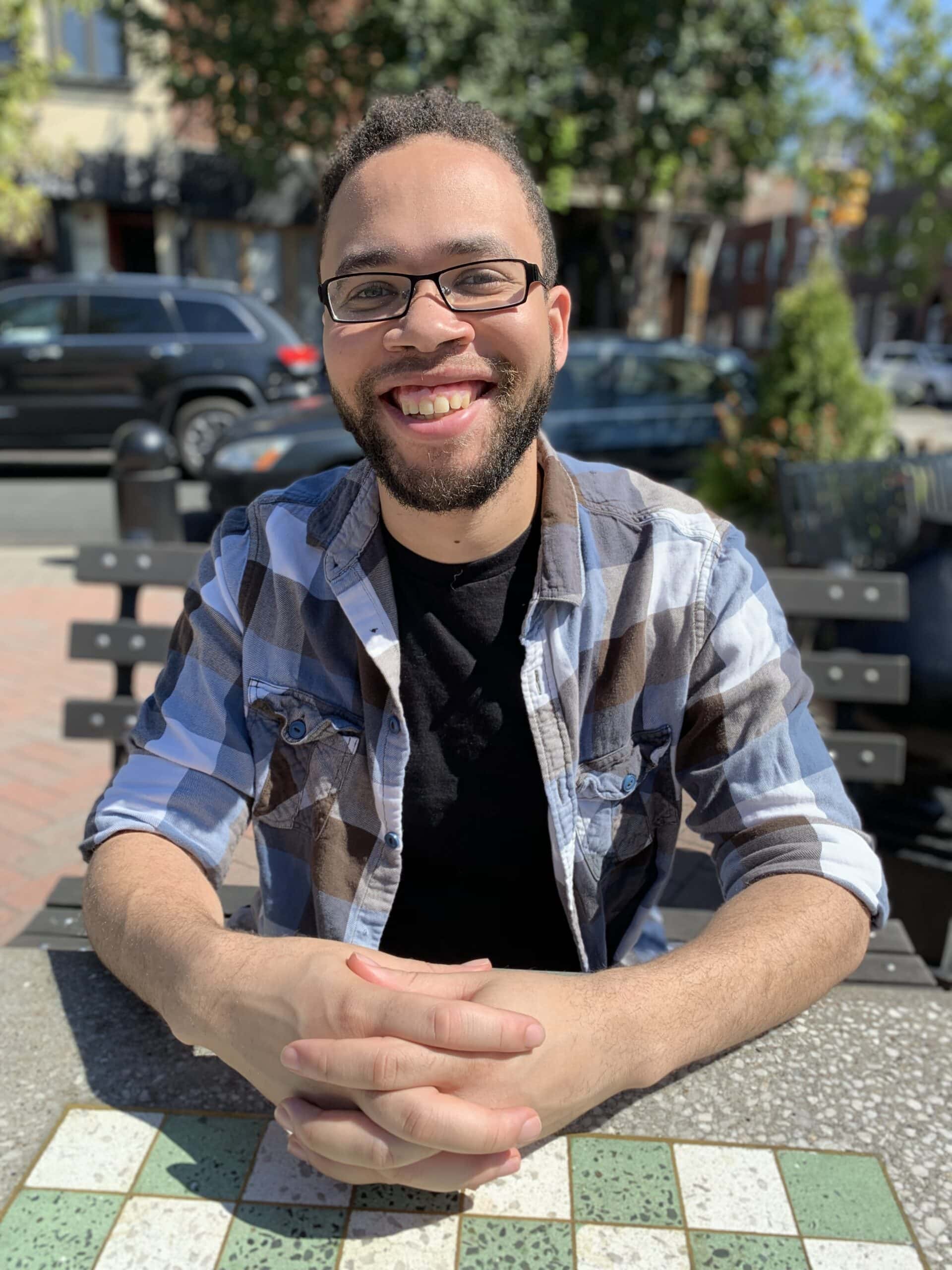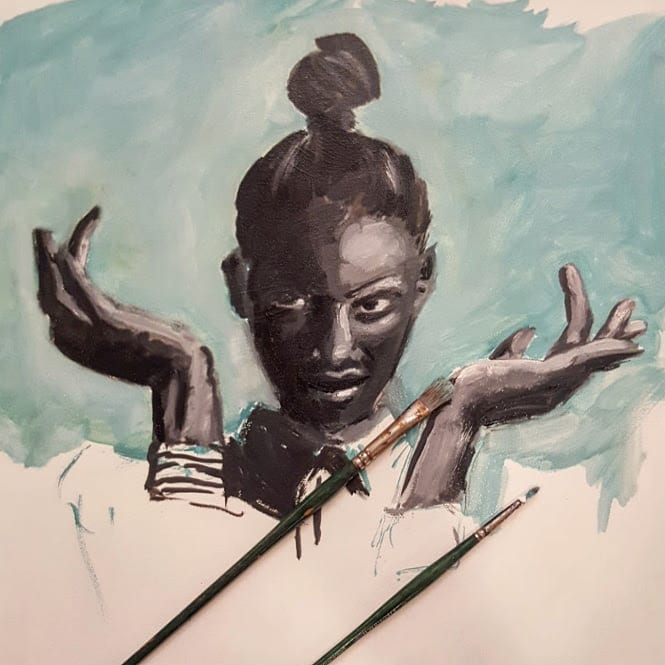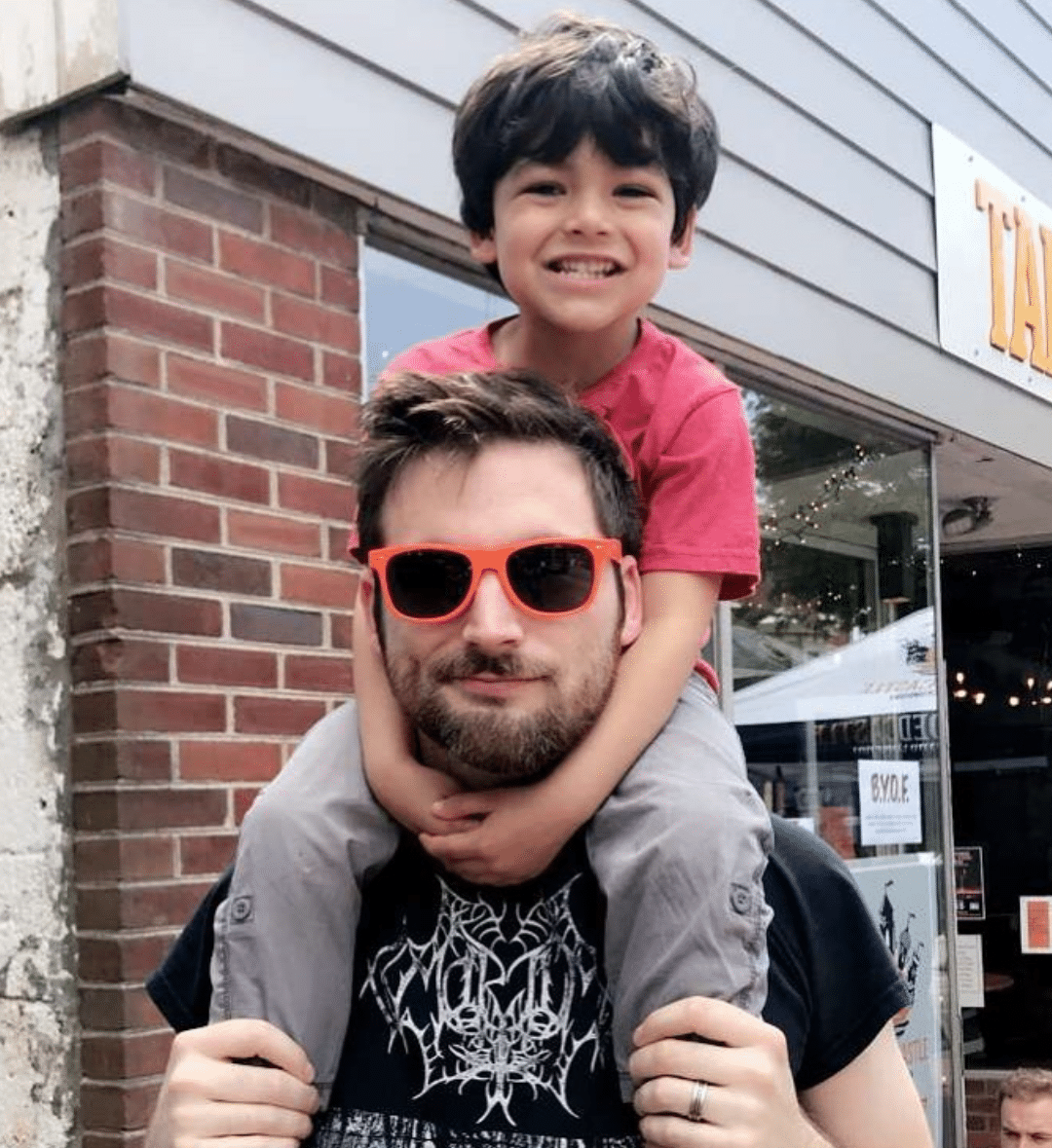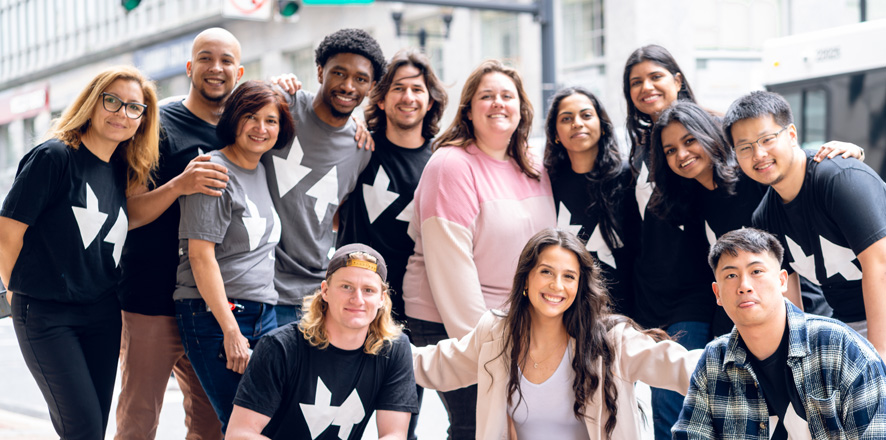Learn how two creative Zip Code Wilmington alumni let their artistic backgrounds add value to their coding careers instead of holding them back.
Little known fact: There’s room for imagination in coding — in fact — it’s welcome. Contrary to popular belief, not all coders are left-brainers (analytical and methodical in their thinking). In fact, as coding becomes the gateway to more varied innovation, the industry is calling on more “creatives” to join the tech team.
But, what’s a “creative” anyway?
To quote best-selling author, Jeff Goins, “A creative is an artist… an individual… a thought leader… A creative creates art… colors outside the lines. On purpose.”
Simply put, a creative is someone interested in telling a compelling story across various mediums — painting, screenplays, games, digital collages, motion graphics — the possibilities are endless.
Fighting against the stereotype that only ONE type of developer exists, we caught up with two Zip Code Wilmington alumni, Justin Jefferson and Joe Fennimore, who found value in Zip Code Wilmington in bridging their artistic careers with coding.
 Let’s get started! (Bonus: At the end, the duo shares their top four reasons that creatives work best in the technology industry)
Let’s get started! (Bonus: At the end, the duo shares their top four reasons that creatives work best in the technology industry)
ZCW: So, tell me a little about yourselves.
Justin: Hi, I am a 26-year-old artist and software developer from Norristown, PA currently living in Philadelphia.
Joe: I’m a 31-year-old software engineer at JPMorgan Chase, and an alumnus of Zip Code’s 10th cohort.
ZCW: Welcome, thanks for agreeing to share your experience with the Zip Code blogosphere! So what were your professional careers before Zip Code?
Justin: I studied art at the University of Delaware. There I learned a multitude of art mediums, but I wanted to combine my interest in tech with my creativity.
Prior to Zip Code, I dipped my toes into software development through game development. Learning to make scripts to make characters move on a screen fascinated me and I knew that I wanted to use code to be creative. However, I knew that my knowledge as a coder was limited to tutorials and I wanted to learn from people who know more. Fortunately, I found Zip Code and realized they had the best program and resources to do that.
Joe: I worked for 10 years as a lead motion designer at an advertising agency where I produced promotional material for companies like Disney, Marvel, Capital Records, Island Records, and DefJam. With specializations in motion graphics, animation, and VFX, I used tools like Adobe After Effects, Cinema 4D, and various other creative software.
I’ve always wanted to get into tech but assumed it was for a special type of person. Being a creative, I’ve been placed under the assumption that I’m better at using one side of my brain and people who write software use the other.
I was introduced to Zip Code by family members who convinced me that my creativity and natural passion for problem-solving would make me a strong asset on a software development team. I realize now that I’m not necessarily abandoning my previous career and skills, but adding to them and carrying them with me to new work.
ZCW: That sounds pretty cool. So, since you’ve both been categorized as “creatives,” what’s your preferred medium?
Justin: I consider myself an artist, but I have dabbled in music in the past. My current focus is on illustration and painting.
 Artwork by Justin Jefferson
Artwork by Justin Jefferson
Joe: I’m most passionate about building and creating things. Most of my work is produced digitally, either in the form of video, audio, or both. I love creating with technology, experimentation with processes and workflows, hacking a tool and using it for something it wasn’t engineered to do.
ZCW: How did Zip Code affect your creativity? Or did it have any effect at all?
Justin: Learning to code is no different from learning to draw or paint — all in all it is a set of tools that you can use to make something that does not already exist. By learning how to code, I am starting to see the connections between programming and the other mediums I know. For instance, I’m working out an idea to create a portfolio site for myself using all of the knowledge I used at Zip Code.
Joe: Essentially Zip Code has opened new doors for my creativity. I went from being able to produce visual and audible experiences to be able to build interactive experiences. I’ve also noticed now that my motion design projects are much more organized and easier to navigate since Zip Code, which I believe that “clean code” practices were the root cause of this.
ZCW: What advice would you give for any creatives interested in joining the technology field?
Justin: “Every artist was first an amateur” Ralph Waldo Emerson. For me, growing as an artist and a software developer means keeping the mindset that I do not need to be amazing right out of the gate. Too often, I see artists and developers be hard on themselves because they are not the best. If you want to grow, you have to constantly see yourself as a beginner, practice the fundamentals, and tackle a problem one step at a time. And if it does not come out how you expected, understand you still made something that didn’t exist before and that’s impressive.
 Joe: If you have ever enjoyed fixing or troubleshooting something that was broken, perhaps trying to find out why an engine or a computer stopped working by swapping parts to see how it changes the problems. Gathering clues as to what is causing the problem by removing things or reverse-engineering something. If any of this sounds fun to you, then you’ll enjoy writing software. The industry has such a high ceiling and competitive compensation, you will have so much room to grow in a rewarding career, it is really a no-brainer.
Joe: If you have ever enjoyed fixing or troubleshooting something that was broken, perhaps trying to find out why an engine or a computer stopped working by swapping parts to see how it changes the problems. Gathering clues as to what is causing the problem by removing things or reverse-engineering something. If any of this sounds fun to you, then you’ll enjoy writing software. The industry has such a high ceiling and competitive compensation, you will have so much room to grow in a rewarding career, it is really a no-brainer.
ZCW: This has been enlightening to hear your perspectives. Thank you so much for your time!
We’ve collected a few gems from our extended conversations with Justin and Joe. Here are four top reasons why creatives and technology create perfect synergies.
- The industry needs your talent. There are not enough creative people in tech. I believe that if more creative people understand how computers work we will see an abundance of new and interesting ways to interact with technology in our lives. The industry needs more people who are passionate about thinking outside the box and experimenting.
- Design skills help make clean code. Anyone who has taken a design class knows that good design is clear and easily interpreted. When writing code, a good design is key for working with others and presenting your product to the user.
- You can do the work. Trust us! If you’ve ever worked on complex projects in 3-D or Adobe software where you have sub (or nested) compositions with hierarchies, layers or properties affecting other layers and properties, or had to restructure a project to make it more efficient on resources — it’s likely that you already have a grasp on many programming concepts.
- Your communication skills will take you far. If you’re coming from a creative profession, you’ve probably got a lot of practice articulating your thoughts and ideas—and that’ll make you an invaluable member of any tech team.
*Interviews were edited for concision and clarity. Thanks again for Justin and Joe for sharing their insight!
Sites:
“What is a Creative”: https://goinswriter.com/what-is-a-creative/
